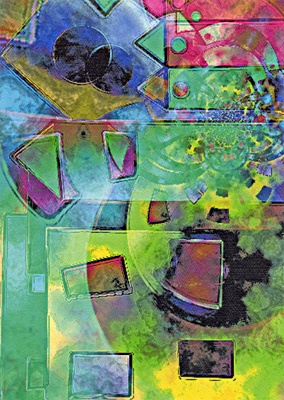All Nonfiction
- Bullying
- Books
- Academic
- Author Interviews
- Celebrity interviews
- College Articles
- College Essays
- Educator of the Year
- Heroes
- Interviews
- Memoir
- Personal Experience
- Sports
- Travel & Culture
All Opinions
- Bullying
- Current Events / Politics
- Discrimination
- Drugs / Alcohol / Smoking
- Entertainment / Celebrities
- Environment
- Love / Relationships
- Movies / Music / TV
- Pop Culture / Trends
- School / College
- Social Issues / Civics
- Spirituality / Religion
- Sports / Hobbies
All Hot Topics
- Bullying
- Community Service
- Environment
- Health
- Letters to the Editor
- Pride & Prejudice
- What Matters
- Back
Summer Guide
- Program Links
- Program Reviews
- Back
College Guide
- College Links
- College Reviews
- College Essays
- College Articles
- Back
The Utility of Imagination
The Oxford English Dictionary (OED ) defines imagination as “the power or capacity to form internal images or ideas of objects and situations not actually present to the senses “.In other forms, imagination almost always drops the ion ,retains the t and is followed by vowel forms. Some exceptions are : imaginal, imaginational, imaginarion, imaginant. The meaning of imagination evolved from a general reference to thought , in Latin and Middle French , to something closer to the modern meaning in Anglo-Norman Middle English during the middle ages. Historically, imagination has been spelled with the i being replaced with y, and the t substituted with a c. The mystical aspects of imagination are evident in its related terms.Image, magic, magnitude , magi connotate from the root mag as something spiritualistic and otherworldly.
Imagination functions as a natural exit from reality. “I would fain understand how men ever came to be abused with the notion of Religion,..if there were not some faculties in them above those of sense and imagination?” stated London preacher E.Stillingfleet in the seventeenth century. The role of imagination in religion is no less than creator. Without the imagination to create answers to unexplainable events, religion is superfluous. Faith is another product of imagination. The Bible, perhaps the greatest religious text of all time, states that faith is “ the substance of things hoped for, the evidence of things not seen”.Imagination, a state of mind, operates metaphysically. As a means of mind transportation, imagination is invaluable. To remember something is to psychologically return to it and imagination is what bridges that connection between reality and the past. Memory is inherently imagination because it returns the mind to a past event. Foresight is another type of imagination. The imagination will create events, or sequences of events, and play them within the confines of the mind. In a sense, the imagination’s planning system is forming possible outcomes to situations and then choosing the most beneficial.
An effect of the imagination is fiction.The work of Roald Dahl is especially dependent on imagination. “ Come with me, and you’ll be, in a world of pure imagination “, are the lyrics from a musical based upon his work. Fiction in writing also utilizes the imagination’s capacity to create images. Imagination can take hold of a consciousness and hallucinate the person into a false belief of being. When reading a book, the imagination is actively engaged envisioning the situation of the character. When watching a film, the imagination will mutate to place the viewer in the character’s circumstances. Indeed it is fair to say that without imagination there is no art. Art is creation, and imagination can be thought of as the human conduit of ideas and inventiveness. Art must be counted as the greatest contribution of imagination to humanity, and where its importance lies. The distinctly human urge to create stems directly from imagination. Art elevates life to humanity, and imagination generates art. Essentially, imagination is humanity. The German philosopher Immanuel Kant stated that happiness was not an ideal of reason, but imagination. Albert Einstein once said that imagination is more important than knowledge. Imagination creates its own world, and its own knowledge.Imagination is invaluable to life , and to the mind.

Similar Articles
JOIN THE DISCUSSION
This article has 0 comments.
